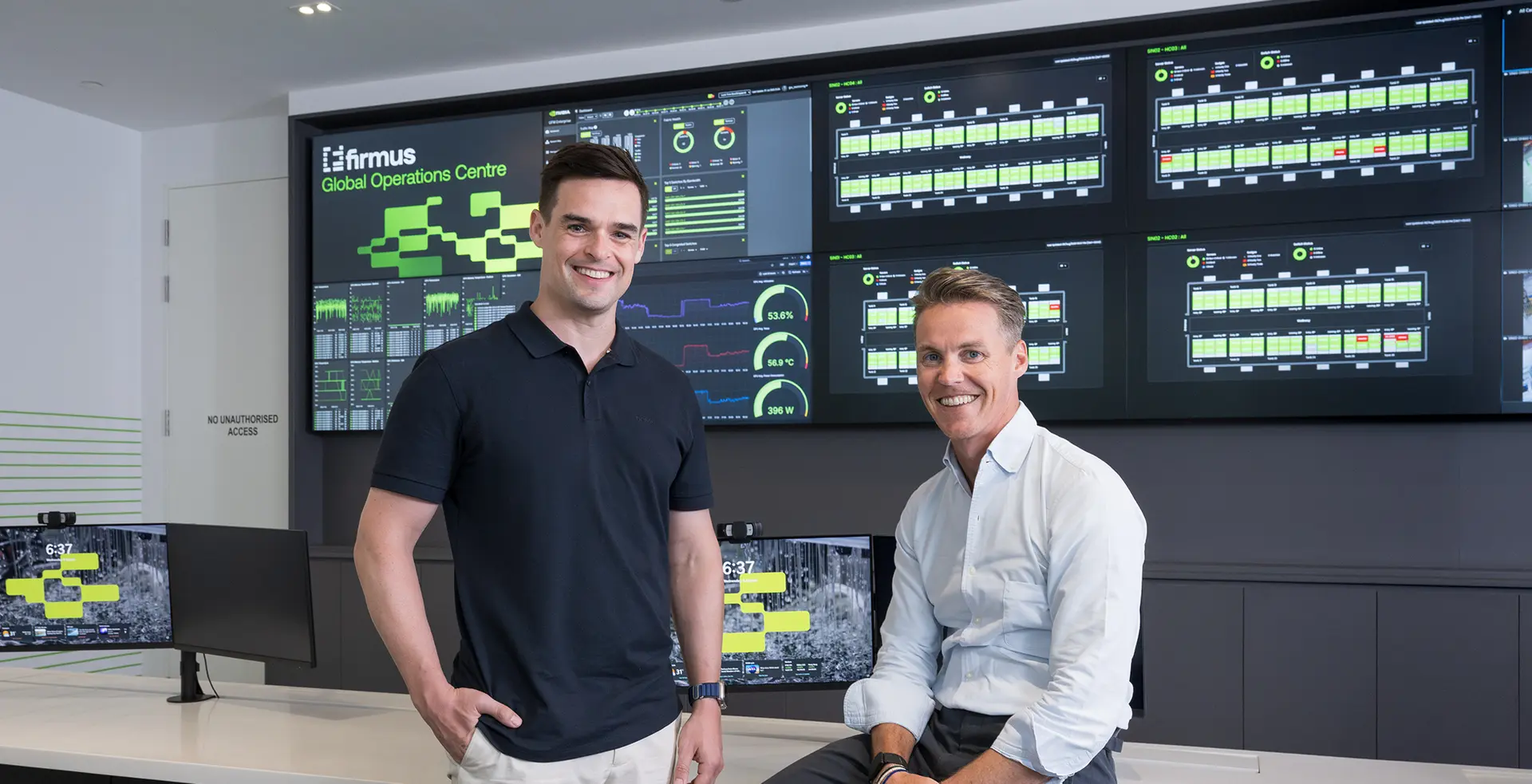
Data centres technology company Firmus Technologies, which is backed by US computer chip maker Nvidia, has announced a partnership to develop a $73.3 billion Australian network of AI data centres − utilising its novel cooling system and availability of renewable energy − over the next three years.
Project Southgate is a partnership between Firmus, Nvidia and CDC Data Centres. Under the project, CDC centres in Sydney, Canberra, Melbourne and Perth will be equipped with Firmus’ management and cooling technologies, the same technologies being used in Firmus’ new modular data centres – AI factories – being developed in Melbourne and Launceston, Tasmania.
Chief executive and co-founder of Firmus, Oliver Curtis, said: “Project Southgate is a blueprint for how Australia can lead the world in scalable, sovereign AI infrastructure. We’re building a new kind of national capability – Australian designed, powered by renewables and ready to meet global demand for energy-efficient intelligence.”
The Launceston, Tasmania and Southgate, Melbourne developments represent the $4.5 billion first stage of Project Southgate. These developments are expected to have access to up to 150MW of renewable power by mid-2006. This will be adequate to power 18,500 Nvidia GB300 GPUs (graphic processor units) which have already been ordered and are expected to be online by April 2026. The GPUs will be available to enterprise, government, start-up and scale-up ventures across Australia through the Firmus AI Cloud.
Nvidia contributed to Firmus’ $330 million capital raise announced in late September which included a cornerstone investment from Ellerston Capital. That raise valued Firmus at $1.85 billion.
CDC Data Centres, is jointly majority owned by infrastructure investment company Infratil (ASX/NZX: IFT) and Commonwealth Superannuation Corporation (CFC). The investors acquired their stakes from Quadrant Private Equity in 2016.
According to Firmus, Project Southgate will deliver sovereign, world-class AI capability at scale, positioning Australia as a leader in digital innovation, advanced manufacturing and supporting the clean energy transition.
The company says every stage of the project will be powered by renewable energy, and its greenfield developments, including in Launceston, will directly support the development of new renewable energy schemes.
Overall, the network of AI factories will accelerate Australia’s path to net zero by providing long-term demand certainty for new clean energy projects, Firmus says. The Tasmania Green AI Factory Campus will anchor new digital industry power demands directory to the state’s renewable power grid, supporting the business case for major infrastructure projects including the Marinus Link undersea power cable between Tasmania and Victoria.
Nvidia’s senior vice president, Asia Pacific, Raymond Teh, said, through Project Southgate, Australia was embarking on a transformative journey powered by sovereign AI infrastructure that could accelerate innovation across the country’s industries.
“Firmus’ Nvidia AI infrastructure will support Australia’s leadership in building and deploying efficient, sustainable AI to solve its greatest challenges and shape the next generation of growth,” he said.
CDC Data Centres chief executive and founder Greg Boorer said his company would develop the new facilities providing the highest resilience, availability and security and, unlike other data centres, they would operate with near zero water consumption, setting a benchmark for sustainable digital architecture.
“This project will create, tens of thousands of safe, high-paying Australian jobs across trades, construction, operations and knowledge work and send a clear signal that Australians can benefit from applying ingenuity, innovation and world-leading designs to shape the future of AI,” Boorer said.
Image: Firmus founders Tim Rosenfield and Oliver Curtis.

